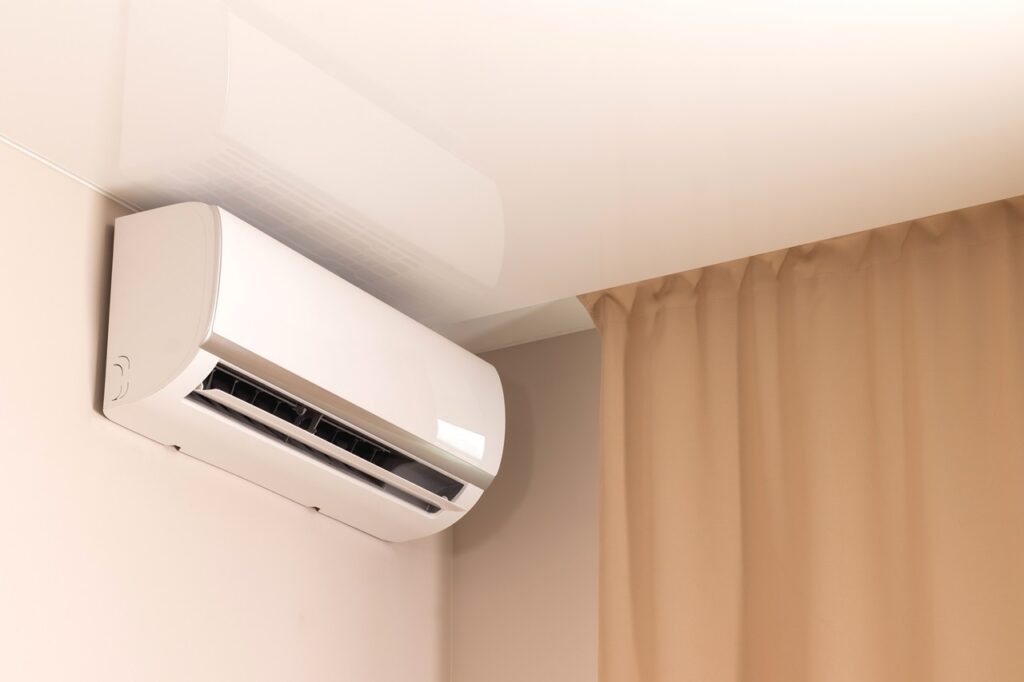Choosing the right heating, ventilation, and air conditioning (HVAC) system for your property in Edmond, OK, involves comparing various options to find the most efficient, cost-effective solution. Two popular choices are mini splits and traditional HVAC systems, each with its own set of advantages and suitable applications. Triple Play Home Services will delve into a detailed comparison of mini splits versus traditional HVAC systems, focusing on aspects like installation, cost, energy efficiency, and overall performance in the unique climate of Edmond. As we break down the specifics of each system, you will gain insights that can help make an informed decision about which HVAC solution best suits your residential or commercial needs. Understanding these options is crucial whether you’re building a new property or upgrading an existing system.
Understanding Mini Splits and Traditional HVAC Systems
Mini splits, also known as ductless mini splits, consist of two main components: an outdoor compressor/condenser and one or more indoor air handling units. These units are connected by a conduit that houses the power cable, refrigerant tubing, suction tubing, and a condensate drain. This configuration allows for individual zoning, which means different areas in a property can be heated or cooled independently of one another.
Traditional HVAC systems, on the other hand, typically feature a central unit that heats or cools air which is then circulated throughout the property via a network of ducts. This setup is more common in older homes and buildings where a central system can efficiently provide temperature control across large, open spaces.
Installation Differences
One of the primary advantages of mini splits is their ease of installation compared to traditional HVAC systems. Mini splits require no ductwork, making them ideal for older buildings or additions where installing ductwork is impractical or too costly. The installation involves mounting the indoor and outdoor units, connecting them with the conduit, and ensuring proper electrical connections are made. This process can often be completed in a single day.
Traditional HVAC installation is more invasive and time-consuming, usually requiring several days to complete. It involves extensive ductwork layout and installation, placement of the large central unit, and detailed configuration of thermostats and venting systems. Given the complexity, it’s critical that professionals handle the installation to ensure optimal functionality and compliance with local building codes.
Energy Efficiency Considerations
Mini splits are generally more energy-efficient than traditional HVAC systems. The key reason lies in the elimination of ductwork. Furthermore, the zoned heating and cooling capability allows occupants to heat or cool only the areas in use, preventing wasteful energy consumption in unoccupied spaces.
Conversely, traditional HVAC systems can be less efficient due to heat exchange in the ductwork and the energy required to push air through the entire system. Improvements such as programmable thermostats and upgraded insulation around ducts can somewhat mitigate these losses, but traditional systems’ inherent design often makes total efficiency hard to achieve.
Cost Analysis Over Time
Initial installation cost is another factor to consider. Mini splits tend to have a higher initial cost per unit than traditional HVAC systems because each room or zone requires its own air handler. However, the lack of ductwork installation can offset some of these upfront costs, and the higher energy efficiency of mini splits can lead to lower utility bills over time.
The costs for traditional HVAC systems might be lower upfront if the property already contains functional ductwork. However, if ductwork needs to be installed or significantly modified, this can quickly become expensive. Additionally, the ongoing energy costs can be higher, depending on the energy efficiency of the system and the condition of the ductwork.
Performance and Comfort
The performance of mini splits in terms of delivering comfort is highly commendable. The ability to control temperatures in individual rooms or zones allows for personalized comfort settings, potentially leading to enhanced occupant satisfaction. The lack of ducts also reduces the risk of spreading allergens and pollutants throughout the property, contributing to better indoor air quality.
Traditional HVAC systems offer their own advantages in performance, particularly in consistently heating and cooling large spaces. Modern central air systems are equipped with advanced filtration, which helps improve indoor air quality by filtering out allergens and pollutants from the air. When properly maintained, these systems can effectively control the climate of a large home or building, making them suitable for properties with extensive, open-plan designs.
Both systems require regular maintenance to perform at their best. Mini splits need cleaning of filters and checks on the outdoor unit to ensure there are no obstructions around the compressor. Traditional systems often require more in-depth checks of the ductwork, filters, and the central unit itself.
Making an informed choice between mini splits and traditional HVAC systems depends on various factors specific to a property and its occupants’ needs. Considerations such as the structure of the property, budget, and desired energy efficiency play crucial roles in this decision-making process. By carefully evaluating these considerations, Edmonds’ homeowners and property managers can select an HVAC system that maximizes comfort and optimizes operational costs over time.
Choosing the Best HVAC Solution for Your Needs
Deciding between a mini split and a traditional HVAC system involves weighing factors like installation, efficiency, cost, and space requirements. Whether upgrading an existing system or installing a new one, it’s essential to consider what will best meet the specific needs of your property and provide the most comfort and savings in the long run. We specialize in both traditional and mini split HVAC systems in Yukon, OK, offering tailored solutions that align with your specific needs and preferences. Let our team at Triple Play Home Services help you navigate your options and find the perfect HVAC solution for your Edmond property.








